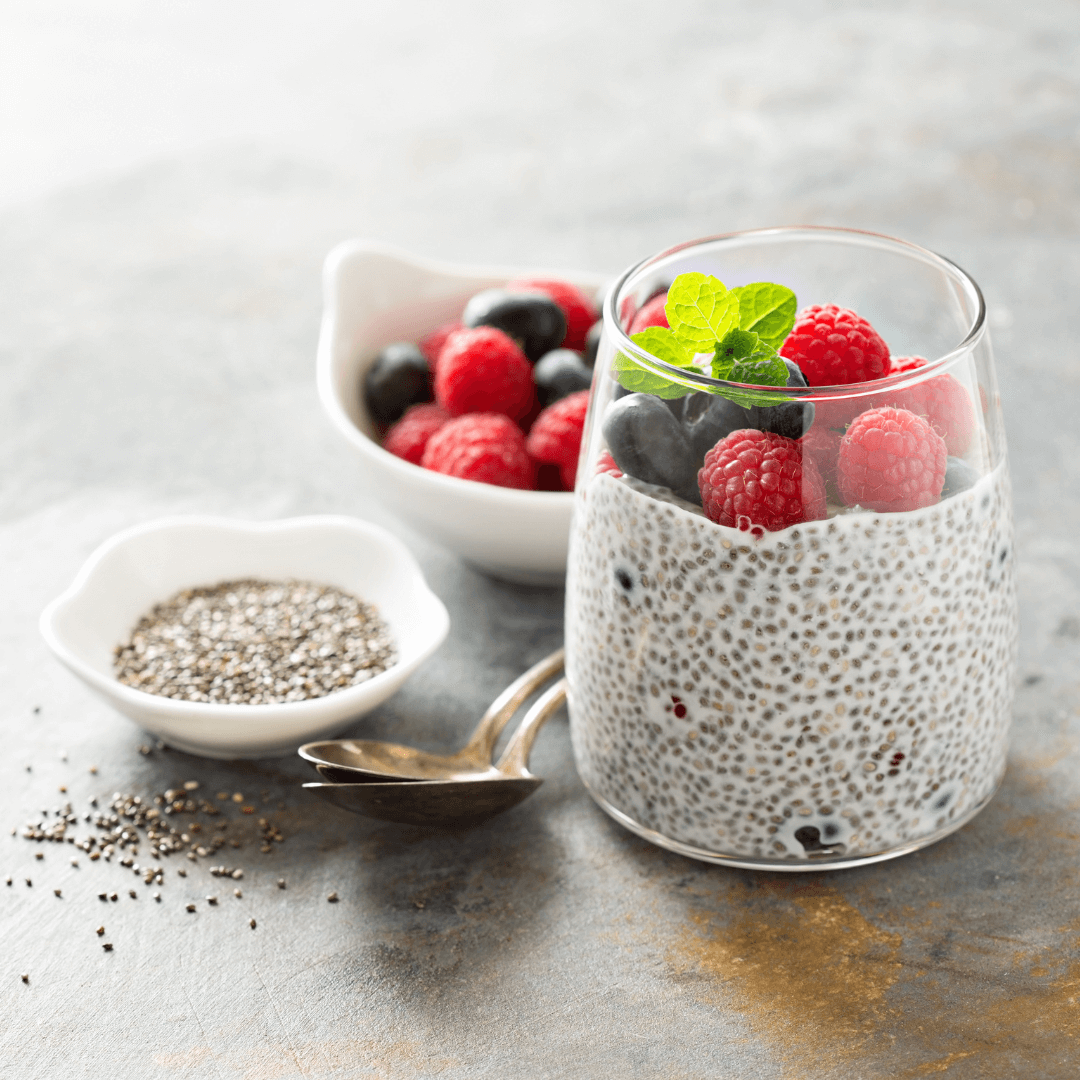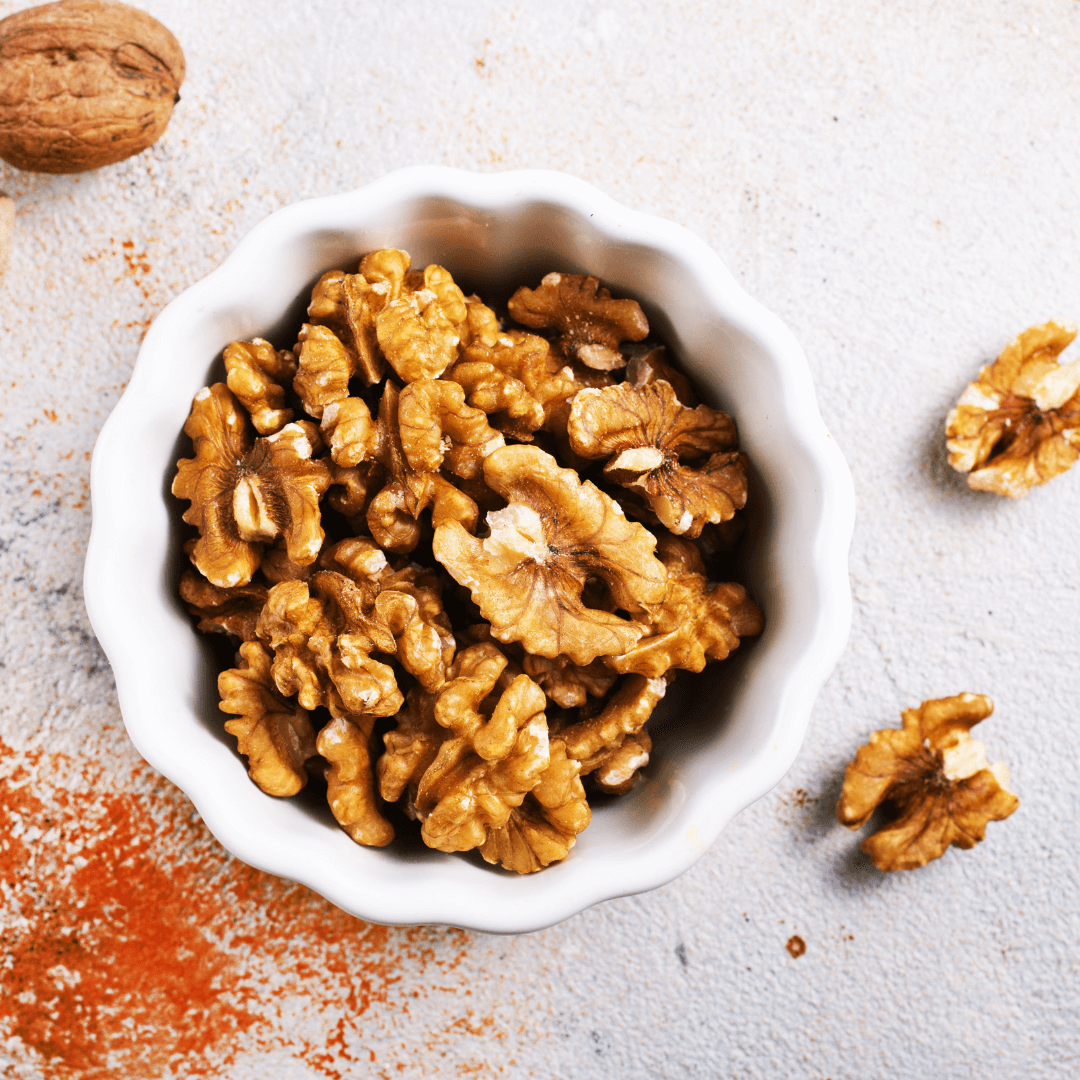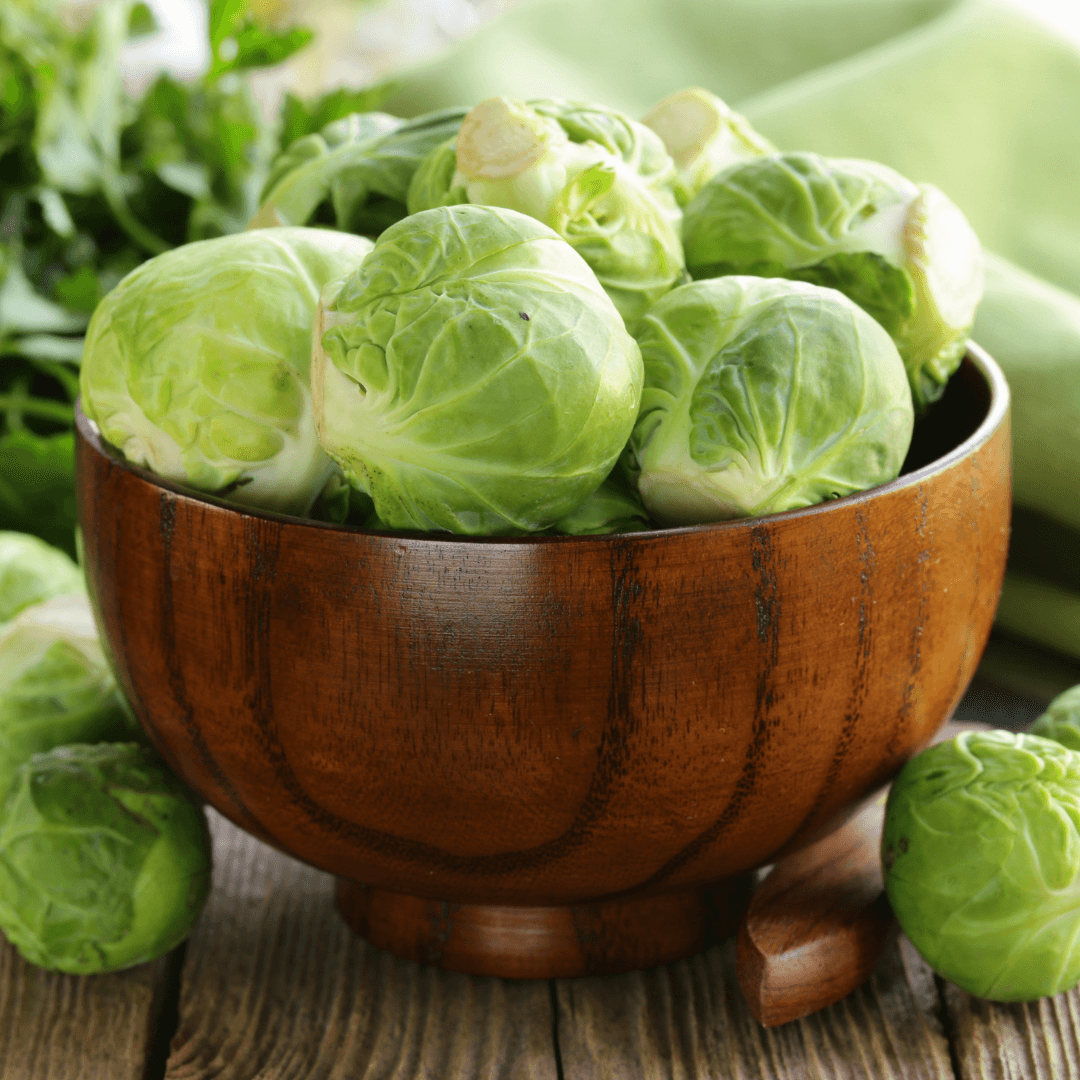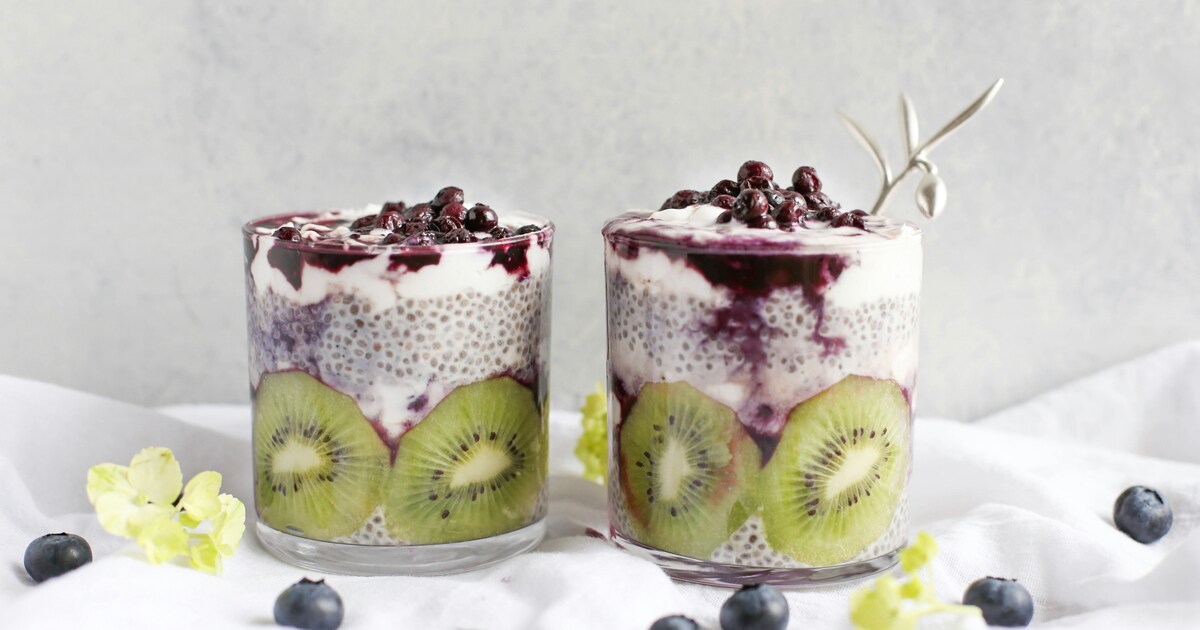Whether or not it’s from an advert on tv or your physician, you’ve seemingly heard that omega-3 fatty acids present many well being advantages. In accordance with the Nationwide Institutes of Well being (NIH), these important vitamins present your physique with power, stop imaginative and prescient loss, help mind well being, enhance cognitive perform, and shield your coronary heart by lowering your threat of heart problems. Nonetheless, not getting sufficient (or an excessive amount of) omega-3s can have penalties in your well being. So, what’s a vegan to do when the commonest dietary sources of omega-3s are fish and different seafood, and the overwhelming majority of omega-3 dietary supplements are derived from fish oil? Learn on. It’s attainable to acquire sufficient omega-3 fatty acids on a vegan eating regimen, however first, it’s essential perceive how a lot you really need. Right here is easy methods to optimize your omega-3 consumption and reside your greatest vegan life.
What are omega-3s?
Omega-3s are important fatty acids, that means it’s essential purchase them by meals as your physique can not produce them by itself. Omega-3 fatty acids are important parts of the membranes surrounding each cell in your physique. They’re additionally anti-inflammatory and assist help communication between cells.
 The three sorts of omega-3s are alpha-linolenic acid (ALA), docosahexaenoic acid (DHA), and eicosapentaenoic acid (EPA). ALA is the plant-based omega-3, mostly present in walnuts, chia seeds, flax seeds, hemp seeds, Brussels sprouts, kidney beans, and different complete plant meals. DHA and EPA are present in marine meals equivalent to algae, seaweed, fish, and different seafood.
The three sorts of omega-3s are alpha-linolenic acid (ALA), docosahexaenoic acid (DHA), and eicosapentaenoic acid (EPA). ALA is the plant-based omega-3, mostly present in walnuts, chia seeds, flax seeds, hemp seeds, Brussels sprouts, kidney beans, and different complete plant meals. DHA and EPA are present in marine meals equivalent to algae, seaweed, fish, and different seafood.
Every of the omega-3 fatty acids is important for staying wholesome, however DHA and EPA are of explicit significance. A 2012 article revealed in Advances in Diet studies that DHA and EPA are essential for coronary heart well being, mind well being, cognitive perform, and fetal improvement. The marine omega-3s have additionally been discovered to assist scale back coronary heart illness threat, stop macular degeneration (imaginative and prescient loss), and assist deal with Alzheimer’s illness. Curiously, our our bodies can convert ALA into DHA and EPA. Nonetheless, this course of is ineffective and the conversion fee varies primarily based on the person. Typically, our our bodies can not convert enough quantities of ALA into DHA and EPA; due to this fact, we have to search out these two variations by meals or dietary supplements.

“Omega-3 fatty acids are important fat that we should get from meals as a result of we don’t produce them in our our bodies. Omega-3s are long-chain polyunsaturated fat (PUFAs) sometimes related to fish/fish oils, however that’s due to advertising and marketing,” Dana Ellis Hunnes, PhD, MPH, RD, senior dietitian on the UCLA Medical Middle and writer of Recipe for Survival, tells VegNews.
“We are able to get all of the omega-3s we want from plant-based sources,” says Ellis Hunnes.
The issue with getting omega-3s from fish
Meals equivalent to sardines, salmon, mackerel, and fish oil dietary supplements have lengthy been touted as the perfect sources of omega-3s. Nonetheless, you might be stunned to study this isn’t the case. DHA and EPA aren’t produced by fish however by algae. Fish are excessive in omega-3s as a result of algae is a major a part of their diets. Algae are plant-based sources of DHA and EPA which are protected for everybody to eat, together with vegans and vegetarians.
Apart from the moral and environmental implications of consuming fish and utilizing them to provide fish oil dietary supplements, fish are excessive in mercury—a naturally occurring heavy metallic that’s extremely poisonous and accumulates within the our bodies of fish. Whenever you eat fish excessive in mercury, that mercury can construct up in your blood over time and negatively impression your well being. As well as, many fish eat microplastics which have chemical residues in them. These microplastics can connect to fatty acids, equivalent to omega-3s. Moreover, present overfishing practices are a rising environmental and sustainability difficulty.
“There are plenty of toxins in our surroundings and plenty of of them usually find yourself within the ocean. For instance, eight million metric tons of plastics find yourself within the ocean annually, and plankton eat them, greater fish eat them, and so forth,” Ellis Hunnes explains. “These plastics/chemical substances get saved in fish fats. As well as, mercury is one other toxin within the atmosphere and in bigger fish (tuna and sharks). So getting omega-3s from plant-based sources primarily eliminates this threat.”
How a lot omega-3 do you want?
So what are you able to do to get sufficient quantities of DHA and EPA should you don’t eat fish or their oil? Lower out the intermediary. Vegans can complement their omega-3 consumption with plant-based algae oil. Analysis exhibits that consuming seaweed or taking an algae oil complement boosts DHA ranges extra successfully than consuming meals wealthy in ALA.

Nonetheless, Ellis Hunnes says supplementing isn’t vital—if you already know what to eat.
“If folks eat sufficient omega-3s from plant sources equivalent to walnuts, chia seeds, flax seeds, and their oils, there’s no must complement omega-3. Furthermore, plenty of literature suggests an entire meals plant-based eating regimen is way more healthy and higher for you than an unhealthy normal American eating regimen supplemented with omega-3,” explains Ellis Hunnes.
Presently, the really useful every day consumption (RDA) for ALA is 1.6 grams for males and 1.1 grams for girls. As for DHA and EPA, there’s no official RDA. Nonetheless, most specialists and well being organizations agree that 250 to 500 milligrams of mixed DHA and EPA is sufficient for many adults. In accordance with the NIH, the signs of an omega-3 deficiency usually seem on the pores and skin as tough, scaly patches or a purple, swollen, itchy rash. Conversely, should you overdo it and eat an excessive amount of omega-3, you may expertise some undesirable negative effects, equivalent to elevated blood sugar, elevated threat of bleeding, low blood strain, diarrhea, acid reflux disorder, stroke, and insomnia, based on the specialists at Healthline.
The underside line on omega-3s
On the finish of the day, don’t stress over your omega-3 consumption. Vegans, vegetarians, and omnivores can get sufficient omega-3 fatty acids by plant sources equivalent to walnuts, brussels sprouts, seeds, seaweed, and algae. It’s a sensible choice to take a plant-based algae oil complement as an insurance coverage coverage to make sure you get sufficient DHA and EPA to guard your coronary heart and mind well being. Be cautious and converse together with your healthcare supplier earlier than taking any new dietary supplements.
For extra on vegan diet, learn:

